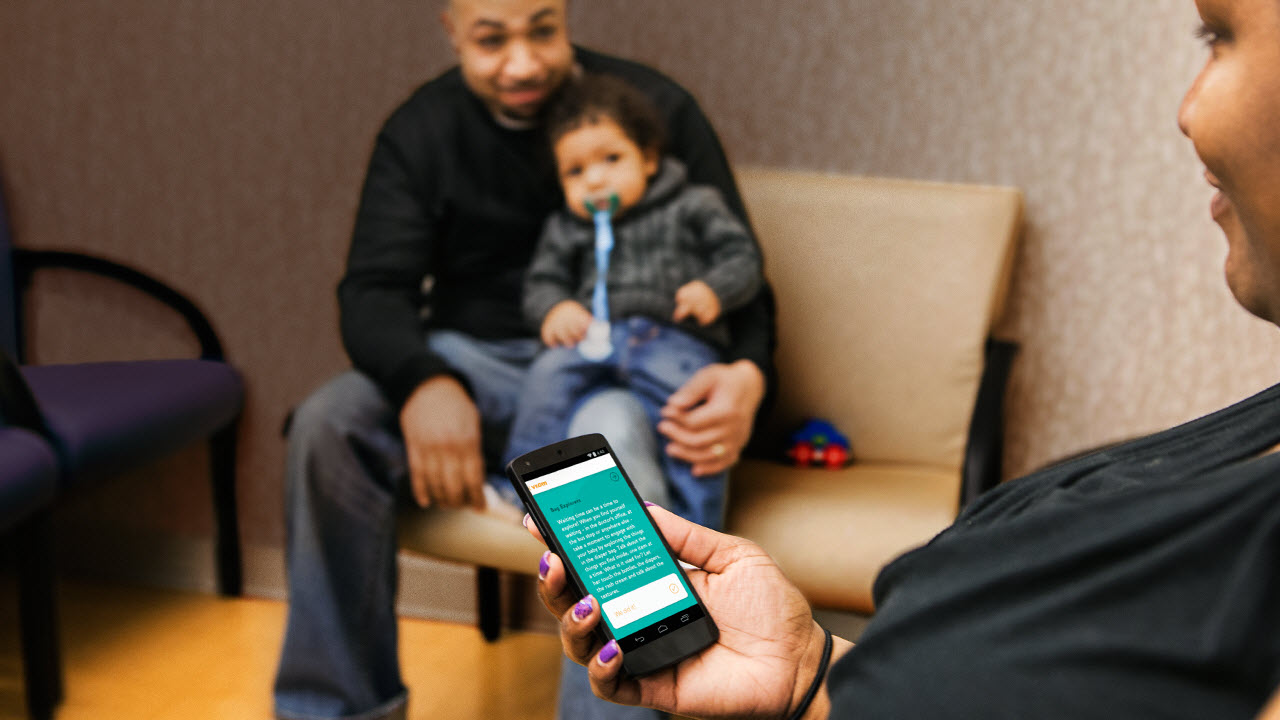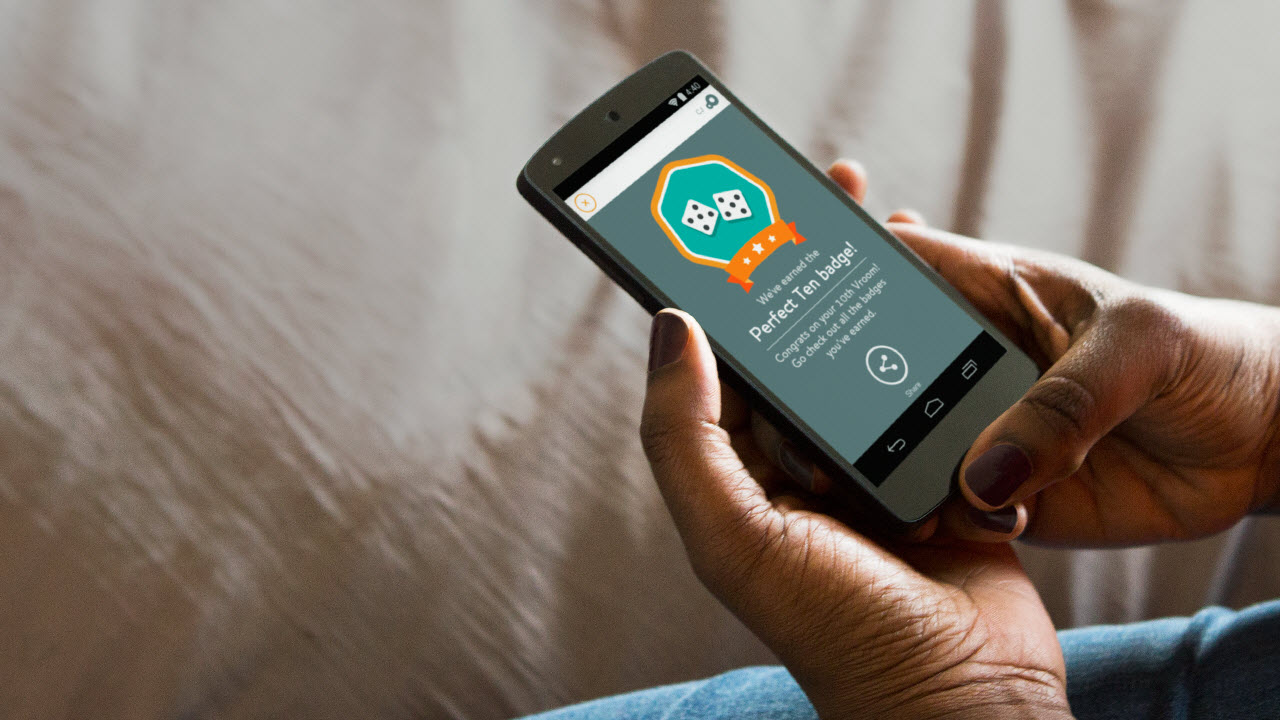
Here’s a mind-blowing fact: Up to age 5, a child’s brain makes 700 neuronal connections per second. Hundreds of billions of neurons are present at birth, and the first five years are when the brain develops the fastest.
“It’s like fireworks in the brain,” says Nicole DeCario, a managing director for the Bezos Family Foundation.
While incredible development is happening during a child's early years, parents and caregivers are sometimes perplexed about how to complement that development, or how to boost the learning potential of babies, toddlers and preschoolers. What tools help kids learn most? What games, activities and products should we use? Does how we talk to our kids impact how much they can grab onto?
For more than seven years, the Bezos Family Foundation has sponsored research by neuroscientists and child development experts at the Harvard Center on the Developing Child and the Institute for Learning and Brain Sciences (I-LABS) at the University of Washington, among other top institutions, to answer those questions.
The foundation wanted to go beyond sponsoring research, though: Leaders wanted to take that academic and ivory-tower learning and place it into the hands of parents in an easy-to-use format. So it created Vroom, an app and program aimed at helping parents use everyday moments as catalysts for boosting children’s learning potential. The Vroom program includes a mobile app and community outreach projects. Brand- and household product collaborations are currently in the works.
It all stems from the brain
When you're putting away laundry, ask your child, 'How does this feel? Is it soft, light, heavy?'
The research the foundation has sponsored indicates that neuronal connections form an essential groundwork that enables a child's future learning and growth.
Each seemingly simple interaction with a baby, toddler, or preschooler can spark an opportunity to make those neuronal connections stronger — whether it’s a song sung during a diaper change, or a fun winking game while brushing teeth before bed.
Daily Vroom, the program’s free mobile app, offers quick tips that can be used throughout the day for interacting with a child, whether you’re at home or out and about. Parents and caregivers tap an icon such as “getting dressed” or “at the park,” and up pops one of nearly 1,000 tips designed to help your kid learn, along with a tidbit of brain science that’s behind the tip (the app calls these quick bites of information the “Brainy Background”). The activities are intended to help build the brain’s cognition, language, literacy and executive functions.
Daily Vroom was developed in conjunction with early-learning experts and neuroscientists, as well as community leaders — including Marian Wright Edelman, president of the Children’s Defense Fund. Busy parents were also consulted. So the activities the app suggests are quick and fun, the better to keep your kids’ attention, but also easy enough for sleep-deprived parents who are juggling many responsibilities.
"We’ve all heard the recommendations to read to your child for 15 minutes a day," says DeCario. "But what if you work three jobs, and don't have those 15 minutes?"
That’s why the Vroom activities can be woven into a day without any fuss. For example, in the “cleaning up” activity section, the app recommends that parents sing as they clean house. If your baby responds verbally, it recommends that parents then incorporate those sounds into the song:

“Baby says, ba, ba, ba, so early in the morning.” (The app personalizes the tips with your kid’s name.)
Another tip helps transform the simple task of putting away laundry a brain-boosting activity. DeCario says, "When you're putting away laundry, ask your child, 'How does this feel? Is it soft, light, heavy?' And ask, 'What else feels this way?'"
"Serve and return interaction is a key ingredient for healthy brain development," DeCario says. "All of Vroom’s content supports these back and forth interactions, and many of the tips include activities that build executive function skills, which are the key to success in school and in life."
The Brainy Background info for this particular Daily Vroom activity explains that when you sing, it activates the part of your child’s brain that processes sound. It also stimulates the part of the brain responsible for actions. So, singing helps your babe listen more clearly, while simultaneously prepping her brain to help her learn words in the future.
Keep it simple, silly
Within the app, the scientific concepts underlying the activities are very simplified — it doesn’t delve into potentially intimidating neuroscience terms such as auditory cortex or frontal lobe. Part of Vroom’s mission is to boost confidence by helping parents believe they innately possess everything they need to help promote their child’s development. The app is colorful and rewards-focused — parents earn online badges when they tap to indicate they’ve finished activities — and the positive messages will be appealing to parents who are familiar with the gaming experience.
The Vroom program has also rolled out community-based outreach to support child development organizations and caregivers in Washington's King County as well as in Dallas, Boston, Oregon (with the State Department of Early Learning), and Louisiana, with plans to expand to additional states in 2016. Save the Children and Childcare Aware of America are two major agencies that the foundation is partnering with.
DeCario says that the foundation is also in the early stages of working with brands and household product companies to place Daily Vroom-style activity suggestions on products that parents encounter every day, from diapers to bottles to food.
The concept is to meet parents where they are, and emphasize to them that they “already have what it takes to be a brain builder,” as DeCario puts it. “Every time you interact with the kids and their eyes light up the sparkle in their eyes, you know that their brains are lighting up.”











